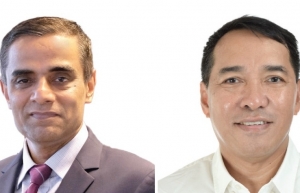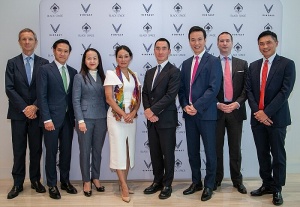Climate Bonds' ASEAN report: diversification in green bond issuances
 |
The report focuses on Indonesia, Malaysia, Philippines, Singapore, Thailand, and Vietnam, and provides valuable insights into the key developments that took place in 2022, shedding light on the growing trend of diversification in thematic issuances across Vietnam.
Across the ASEAN region, the green, social, sustainability, sustainability-linked (GSS), and transition debt market experienced a 32 per cent contraction in 2022 compared to the previous year.
This trend was in line with the global trajectory, which witnessed a 24 per cent decrease ($858.5 billion in 2022 versus $1.1 trillion in 2021). However, it is important to note that volumes remained robust, nearly doubling the levels recorded in 2020.
Several positive indicators emerge from this scenario, including an upswing in sovereign issuances and various policy and market development initiatives that have further fortified the regulatory and technical landscape. Notably, Indonesia and the Philippines exhibited tremendous growth in GSS+ issuances, largely attributed to robust sovereign issuance and record-breaking volumes in the green Sukuk and social bonds category.
One noteworthy trend in ASEAN was the increase in deal sizes and tenors. The region saw an increase in deal sizes and tenures – a considerably higher share (71 per cent in 2022 vs. 52 per cent in 2021) of deals were benchmark-size (more than $500 million).
The first sustainability bond with a tenure of over 20 years was issued in 2022 in the Philippines. Across the six markets covered (Indonesia, Malaysia, Philippines, Singapore, Thailand, and Vietnam), Singapore was top in most debt segments, representing 63 per cent of the cumulative volume and 60 per cent of 2022.
Sovereign issuances play a key role in stimulating market activity and development as well as in allocating large amounts of capital to sustainable projects and activities.
In 2022, Singapore and the Philippines joined the ASEAN's Sovereign club. Sovereign issuance in the region is concentrated in sustainability bonds, which enable governments to raise funds for a combination of green and social projects.
2022 was an active year for policy and market development initiatives in the region, with the release of a regional ASEAN Sustainability-Linked Bond Standards, as well as stakeholder consultation on the first version of ASEAN Taxonomy conducted throughout the year, alongside a range of national-level sustainable finance initiatives and measures by respective ASEAN Member States, including but not limited to the spheres of disclosures, transition finance and taxonomies.
Kelvin Tan, managing director, head of Sustainable Finance and Investments, ASEAN, HSBC said: “The sustainable finance market in ASEAN is now at an inflection point. The frequent sovereign issuances, which have become the norm in ASEAN, indicate a high level of interest from governments in the region to develop the market."
"Additionally, with greater awareness and stronger business impetus as a result of recent developments in policies and taxonomies, this sets a very promising tone for the future of sustainable finance in the region. We must continue with this momentum and build on the strong private-public partnership in the region, such as the Just Energy Transition Partnerships in Indonesia and Vietnam, to allow for more financing to be deployed to support the transition to a net-zero future.”
Tim Evans, CEO of HSBC Vietnam said: "As economies in ASEAN face the threat of climate change, both physical and transition risks, banks like HSBC have an important role to play in providing thought leadership as well as providing funding to mitigate these risks and support our clients in their transition plans. In early 2022, we announced our commitment to help arrange up to $12 billions of direct and indirect sustainable financing for Vietnam and its corporate sector by 2030."
"This year, we have joined the GFANZ Working Group to continue our work alongside the Vietnamese Government to help mobilise private capital to support Vietnam's Just Energy Transition Partnership. Together with the efforts and policies on sustainable finance advocated by the ASEAN governments, we are positive that the sustainable finance market in ASEAN and Vietnam will continue to grow over the next years and provide the necessary support to the region's net-zero objectives".
On the other hand, Vietnam has seen an increasing diversification of thematic issuances in recent years, both in terms of instrument types and themes.
In terms of policy and development, supportive efforts and policies on sustainable finance were advocated by the Vietnamese government, with the release of a guidance on environmental risk management in credit extension activities by the State Bank of Vietnam, alongside the announcement of a national programme to support private enterprises in sustainable business development until 2025.
In a significant stride towards sustainable energy transition, Vietnam is set to receive a substantial boost through the Just Energy Transition Partnership. This partnership entails an initial financing injection of $15.5 billion aimed at facilitating the transformation of Vietnam's energy sector. Complementing this endeavour, the Vietnamese government has also expressed its commitment to enhancing the country's legal framework for green finance, thereby fostering greater interest and engagement in this burgeoning space.
Issuance activity in Vietnam during 2022 primarily revolved around loans, specifically green and sustainability-linked loans. Notably, five different issuers participated in this market, collectively reinforcing Vietnam's dedication to sustainable finance.
Among these transactions, the largest loan originated from Vinfast Trading and Production, an automotive company and subsidiary of the esteemed Vietnamese conglomerate Vingroup JSC. This $500 million green loan marked Vinfast's second foray into this space, following a successful $400 million green loan in 2021. It is worth mentioning that Vinpearl JSC, another subsidiary of Vingroup, previously made its mark by issuing Vietnam's sole sustainability bond to date, amounting to $425 million in 2021.
 | Evolution in global value chains key for green and resilient ASEAN ASEAN has again proven itself to be among the world’s most resilient economic groupings. Relying on strong exports, sound macroeconomic policies, and effective buffers, the economies of ASEAN recovered rapidly from the devastating impacts of the pandemic, recording growth of 5.6 per cent in 2022 after falling to 3.2 per cent in 2020. |
 | VinFast revs up for $23 billion SPAC merger and US stock market entry VinFast Auto Pte. Ltd. (VinFast), a manufacturer of electric vehicles (EVs) from the Vietnamese conglomerate Vingroup, and Black Spade Acquisition Co. (Black Spade) announced a momentous business merger agreement on May 12. |
What the stars mean:
★ Poor ★ ★ Promising ★★★ Good ★★★★ Very good ★★★★★ Exceptional
Related Contents
Latest News
More News
- $100 million initiative launched to protect forests and boost rural incomes (January 30, 2026 | 15:18)
- Trung Nam-Sideros River consortium wins bid for LNG venture (January 30, 2026 | 11:16)
- Vietnam moves towards market-based fuel management with E10 rollout (January 30, 2026 | 11:10)
- Envision Energy, REE Group partner on 128MW wind projects (January 30, 2026 | 10:58)
- Vingroup consults on carbon credits for electric vehicle charging network (January 28, 2026 | 11:04)
- Bac Ai Pumped Storage Hydropower Plant to enter peak construction phase (January 27, 2026 | 08:00)
- ASEAN could scale up sustainable aviation fuel by 2050 (January 24, 2026 | 10:19)
- 64,000 hectares of sea allocated for offshore wind surveys (January 22, 2026 | 20:23)
- EVN secures financing for Quang Trach II LNG power plant (January 17, 2026 | 15:55)
- PC1 teams up with DENZAI on regional wind projects (January 16, 2026 | 21:18)

 Tag:
Tag:




















 Mobile Version
Mobile Version